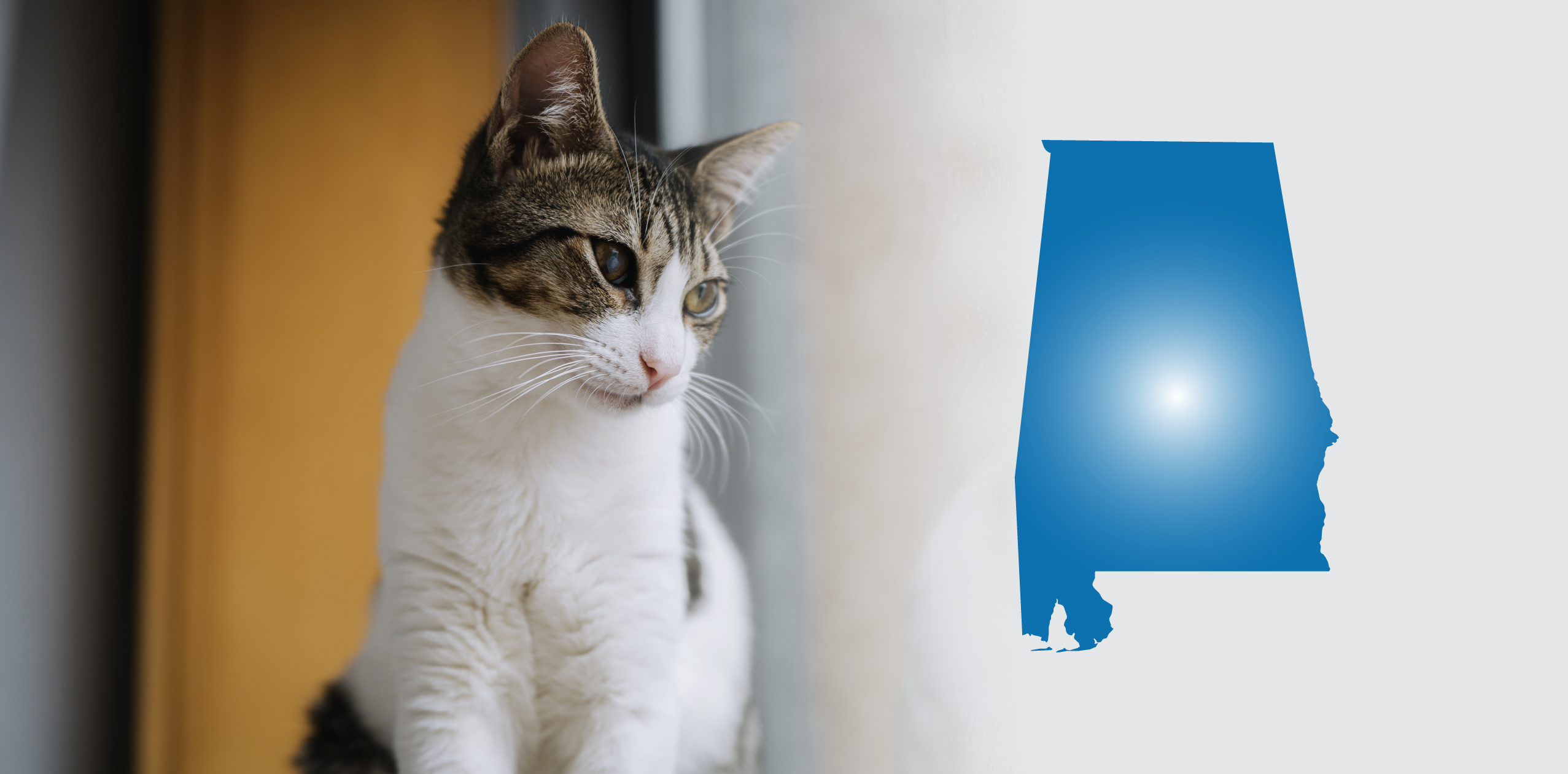On Wednesday, the Alabama Department of Public Health (ADPH) confirmed that a young kitten in Autauga County developed rabies and subsequently died.
Dr. Dee W. Jones is the State Public Health Veterinarian.
“This is another reminder to get your pets vaccinated against rabies regardless of where you live,” Dr. Jones said. “We have found rabies positives in both domestic animals and wildlife very close to populated locations.”
The kitten tested positive for rabies on December 22. The kitten was from a residence in south central Autauga County on County Road 46 near the general area between the communities of Booth and Independence.
The kitten was among a litter of very young kittens were taken by the property owner approximately one month ago. The kitten was exhibiting neurological signs and was taken for veterinary care where he/she was tested for rabies. More testing is being done to confirm the rabies strain. The remaining two kittens have been vaccinated and are being quarantined for rabies.
ADPH has identified all the persons at the residence as well as the veterinary clinic who were exposed to the kitten. At this time, all those persons exposed are being advised to seek medical care for prevention.
State state law requires that dogs, cats and ferrets 12 weeks of age and older be current with rabies vaccination. The first rabies vaccination is only good for one year, regardless of which vaccine a pet receives. Vaccinating animals reduces the risk of rabies infection if the animal is exposed to rabies. Vaccinations help protect animals, as well as their owners and caretakers.
There are two major strains of rabies: a raccoon strain and a bat strain. Both are endemic in the state of Alabama.
Wild animals, especially raccoons, pose a risk of rabies to other animals and humans. The best protection is to keep your pets current on rabies vaccines.
“Vaccinating your animals against rabies is the best way to keep your pets protected from the deadly virus.” Dr. Jones said. “Animal vaccinations also help protect people. People are often exposed when the animal first becomes sick and before rabies can be confirmed.”
This was not the first case of rabies this year:
- A raccoon in Clay County tested positive for rabies in September.
- A fox in Clay County tested positive for rabies earlier in September.
- Fifteen people in Russell and Lee County, as well as pets, were exposed to rabies by a rabid cat this summer.
- A fox in Houston County tested positive for rabies in April.
- A raccoon in Houston County tested positive for rabies in February.
The best way to combat rabies is prevention:
- Taking precautions with wildlife.
- Make sure their pets are current on rabies vaccinations.
- Always report any animal bite or other exposures to their medical provider and the ADPH.
- Do not let pets run loose. Keep them in the house or in a pen or enclosure.
- Do not leave uneaten pet food or scraps near your residence.
- Do not illegally feed or keep wildlife as pets.
- Do not go near wildlife or domestic animals that are acting in a strange or unusual manner.
- Caution children not to go near any stray or wild animal, regardless of its behavior.
For more information about rabies and prevention, please contact ADPH at (334) 206-5969 or visit https://www.alabamapublichealth.gov/infectiousdiseases/rabies.html
To connect with the author of this story or to comment, email [email protected]













